| SUSTAINABILITY |
Ensure that returnable glass bottles are being retrieved
Increase bottle durability to maximize the times its being reused


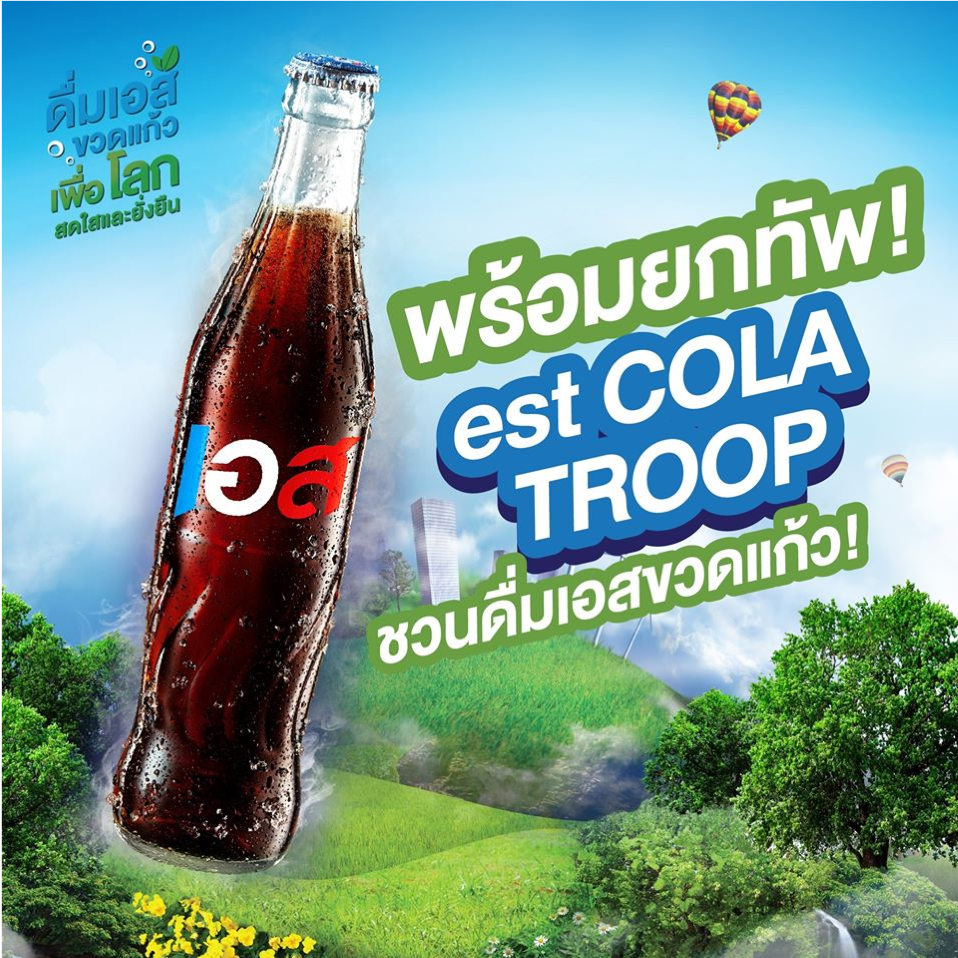
A nationwide campaign was launched to promote ‘Returnable est COLA bottles’ focusing on food shops and restaurants channel. As an industry, returnable glass bottles has been losing its charm at the expense of more convenient plastic PET bottles. However, EST brand sees sustainability differently and committed to re-activate relevance of this format driving growth of +7% and maximizing 80% of SermSuk’s environmentally friendly packaging portfolio in this channel, surpassing industry peer performance rates.
Increase the proportion of recycled content
Optimize the packaging to reduce resource consumption

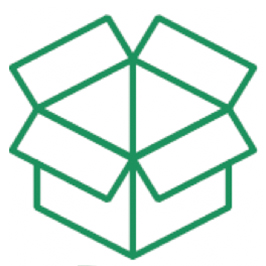
Of paper used in corrugated carton is made from recycled content
Increase the proportion of recycled content
Optimize the packaging to reduce resource consumption
ThaiBev has initiated the “Can 2 Can” project, a cooperative effort between ThaiBev and its direct supplier, the aluminum can manufacturer, and an indirect supplier, the aluminum sheet manufacturer. In FY2019, 703 tons of cans have been retrieved which amounts to 52 million cans representing 14 percent of the total volume of ThaiBev products sold in Thailand. This initiative enable ThaiBev to increase the use of recycled material in our packaging and ensure that recyclable packaging is actually recycled. Currently, the recycled content of aluminium can use in ThaiBevs production is 61% by weight.
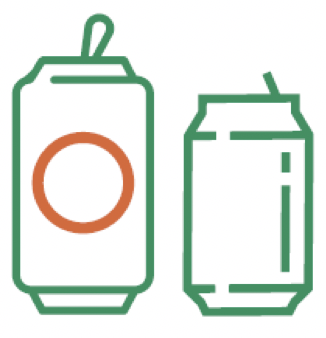
of aluminum cans sold in FY2019 were retrieved for recycling (by weight)

Aluminum can is one of ThaiBev’s main packaging used in Spirit, Beer and Non-alcoholic Beverage businesses. ThaiBev has been working closely with aluminum can suppliers to optimize the specification of aluminum cans to reduce environmental impacts while maintaining attractive design and products’ safety. By 2030, ThaiBev aims the amount of materials used in aluminum packaging by 2,700 metric tons compared to 2020
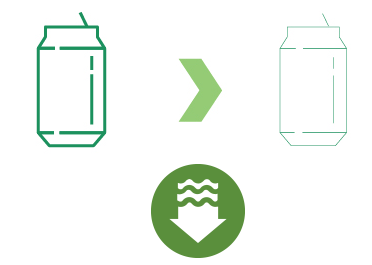
Optimize the packaging to reduce resource consumption
Avoid single-use plastic
ThaiBev’s Carbonated Soft Drinks (CSDs) and Green Tea products are no longer sold in colored PET bottles to facilitate feasible recycling process. Realizing the potential environmental impacts of secondary packaging, ThaiBev is also working closely with its suppliers to study the possibility of switching from non-recyclable to recyclable or reusable alternatives. For instance, ThaiBev currently experiments on using PET of PVC labels in Oishi Green Tea products.
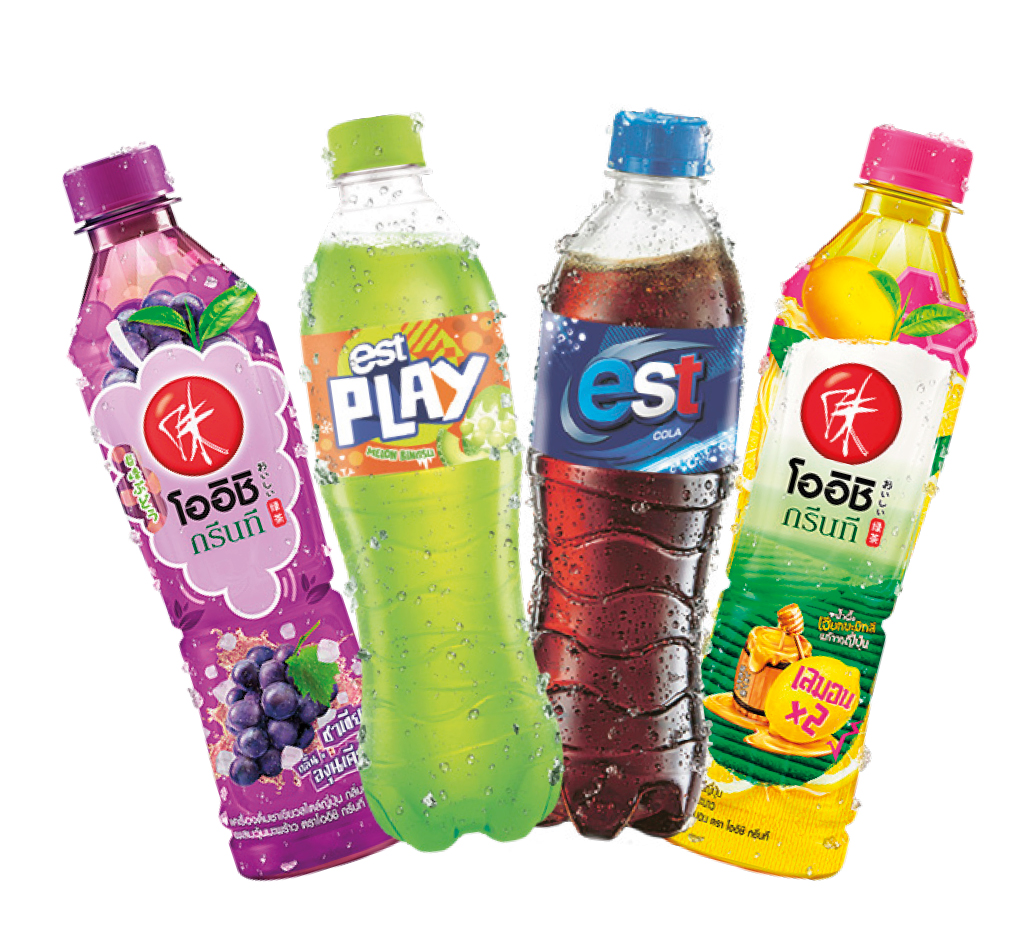
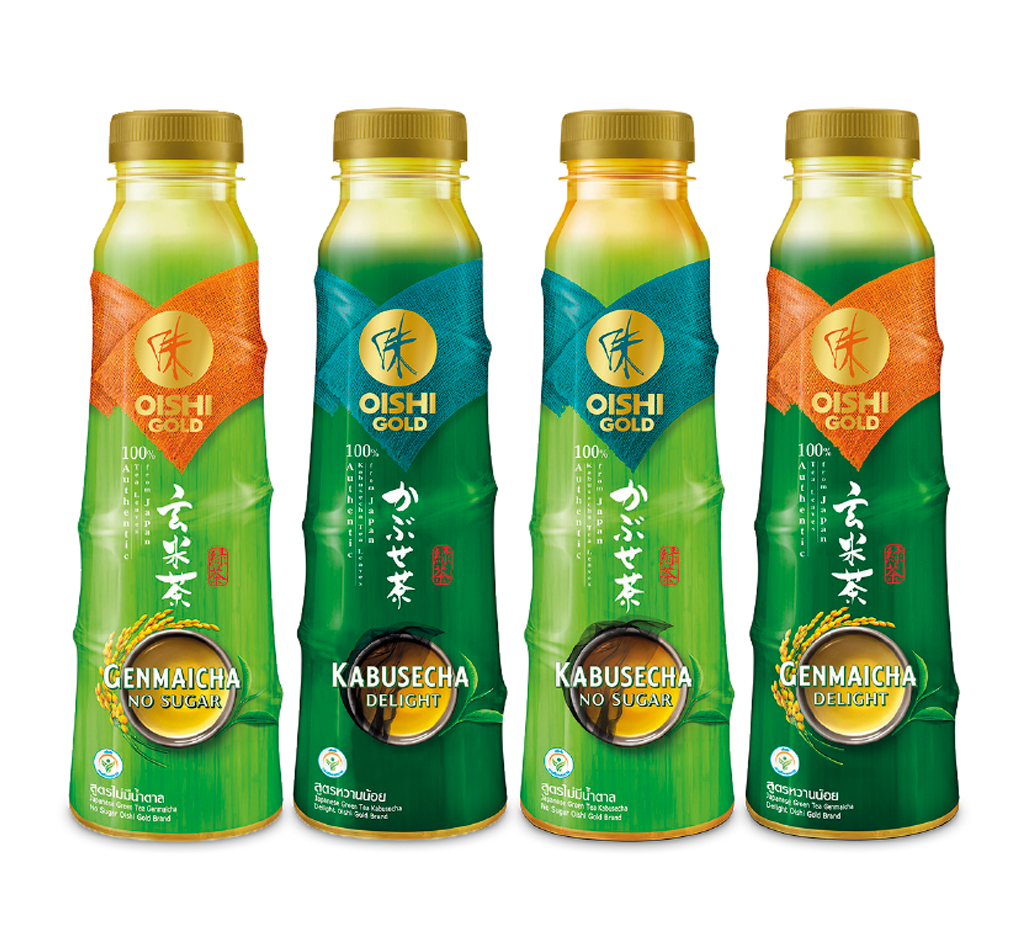
ThaiBev has continuously been reducing the use of raw materials used to produce plastics bottles since 2014. Up until today, the weight of PET bottles used for drinking water have been successfully reduced from 17g to 13.5g.
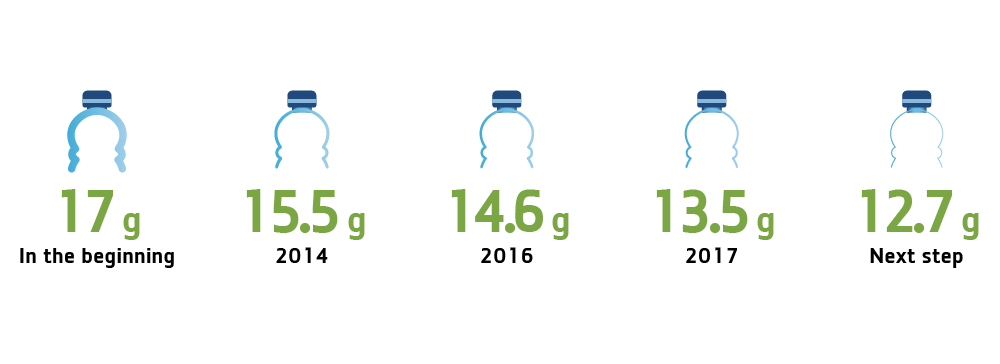
Of packaging weight reduced
Of plastic reduced
Of GHG emissions reduced
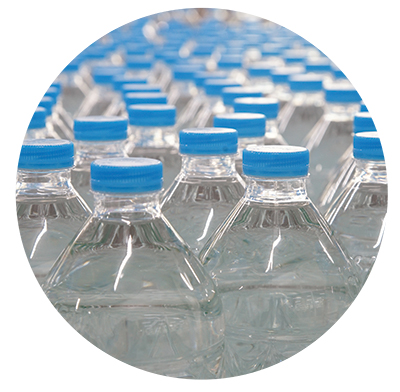
> 340 million pieces
Of plastic reduced
In accordance with Thailand’s National Solid Waste Management Master
Plan (2016-2021), ThaiBev, as a major producer of drinking water, has
participated in the “No plastic bottle cap seal” project to reduce plastic
waste. ThaiBev’s subsidiaries, including Sermsuk and Thai Drink, signed an
MOU for the project on February 13, 2018 at the Department of Pollution
Control, Ministry of Natural Resources and Environment. Together with other
major companies, ThaiBev has agreed to stop using plastic bottle cap seals
for drinking water starting April 1, 2018.


In an effort to increase the use of recycled packaging material, Sermsuk, a subsidiary of ThaiBev, is working closely with it suppliers to develop recycled PE shrink film that will be used to package Crystal Drinking Water. The film is currently being tested by Packaging R&D team and is expected to be implemented in FY2020. The recycled PE shrink film will featured up to 25% recycled content.